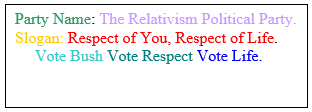Introduction
Philosophy is usually understood in various diverse ways by people or philosophers of different backgrounds. However, these different philosophers aim at achieving some understanding, awareness and gaining some intelligence, to think, support and argue rationally on various essential matters. Moore & Bruder, 2005 philosophically offered a succinct definition of moral statement as one which states whether something is right or wrong, good or bad, acceptable or unacceptable in a specific social setting. The setting is very important in that, what a certain society prescribes as morally acceptable might be perceived on the contrary in another society..
According to Moore & Bruder, 2005, philosophy can be viewed in two perspectives mainly traditional and modern points of view. Moral or ethical philosophy is also encompassed in these two perspectives. The traditional perspective philosophers base their arguments on emotivism in their moral judgments. In this point of view, emotivists argue that in argument or statement, there is no true or authentic proposition to any matter of discussion.
According to the traditional emotivists, there is nothing true or false, all what matters is whether one keeps the promises in the statement. Modern philosophers in the perspective of relativism purport the evaluation of moral judgments in an empirical and pragmatic criterion. Traditional morals and political philosophies were highly utilized in the American politics and were highly successful (Lakoff, 2004). Political philosophy has got its roots in ethics and advertisements such as fliers should also entrenched in.
The traditional moral and political philosophy
In Political parties campaign advertisements, slogans and party names need to have a moral visions and values. Values such as responsibility, equity and equality, cooperation, fulfillment, freedom, transparency and honesty.
These are some of the political principles which should unite and strengthen political leaders and their followers, as exercised by traditional philosophers in politics. Lakoff, 2004, compared politics with the family where strict fathers who perceives the world evil, usually restricts their children and they end up doing what feels good and not necessarily right. Applying this metaphor to political philosophies, a party leader is like the father and its followers are like the children, and therefore should strive to make the followers fulfilled by doing what it feels good but not a must to be righteous. Political campaigners in the traditional philosophical dimension adopt policies, slogans and party names which fulfil their followers’ goodness in their campaigns advertisements such as the flier below.

Traditional political philosophers argue that they adopt traditional patriotic values, based on the voters need; they decree them and live them always. Controversial matter may arise, and among the most likely one is the issue of social acceptance versus morality. A certain matter may be generally viewed as immoral in the global context, but the emotivists’ party will interplay this for the optimal fulfillment and for the good of the citizens.
Modern moral and political philosophy
The modern philosophy is usually encompassed in the scientific branch of moral psychology. In this dimension, philosophers are entrenched in analytic processes in their thoughts and propositions in order to come up with a relatively sound judgment in their political party slogans and names in their advertisement media. In this branch of philosophy, thinking is never ordinary and as noted by Harman, failures in political reasoning results in to mistrust by a politicians’ follower. These philosophers puts into considerations the two sides or effects of their judgments and policies. Generally they employ utilitarian theories in their approach on political matters (McGeough, 2007).
A political advertisement in the modern dimension should implant a sense of relativism on voters. Its slogan should aim at stating something which stands an empirical test and morally rightful. For instance, they should inculcate values like respect to human rights, transparency, and respect to life (say no to abortion) among other values. Below is an example of a flier advertisement in the modern philosophical approach in politics.

The relativism party is interested on ensuring respect of life to voters, but controversy arises the moral stand on events like abortions, where both the mothers’ life as well as that of the baby is in question. The moral controversy evident here is, whose life is more important than whose, in case one has to pave way for the other. The relativism party’s stand on this issue is that the mother will be given priority in such cases.
Conclusion
In their advertisements, political parties should adopt campaign policies and slogans which integrate both the traditional and modern political philosophies and values, for the optimal success of campaign and maximum trust from the voters. An advertisement flier should not be made in such a way as to give a firm stand on either side so as to suit all voters with different perspective on thought about the two schools of thought.
References
Harman, G (2002). Trends in moral and political philosophy, Princeton NJ. Princeton University. Web.
Lakoff, G. 2004. Our Moral Values. The Nation. Web.
McGeough, R. E., 2007. Family Business: Moral Systems, Political Ideologies and Arguments in Iowa’s 1st Congressional District. Annual Convention, TBA, Chicago, IL. Web.
Moore, B. N. & Bruder, K. (2005). Philosophy: The power of ideas (6th Ed.). Boston. McGraw-Hill Higher Education.